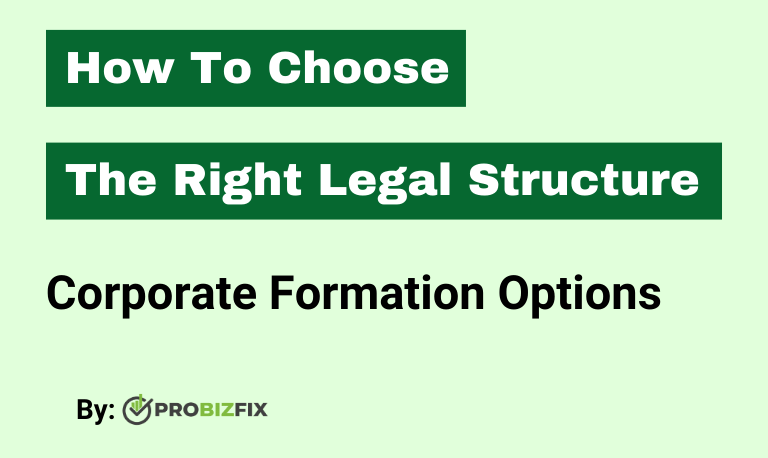


Choosing the right legal structure for your new business is an important decision that will have long-term implications for your company. The legal structure you choose will determine how your business is taxed, how much personal liability you have, and how you can raise capital.
If you’re looking for a seamless way to register your new business, Incfile.com is an ideal solution. With Incfile, you can easily choose the legal structure that’s right for your business and complete the necessary paperwork online. They also offer a range of business services and resources to help you get your business up and running quickly.
Before you register, let’s go over the different legal structures available to small businesses and help you choose the one that’s right for you.
There are four main legal structures for small businesses: sole proprietorship, partnership, corporation, and limited liability company (LLC). Each has its own benefits and drawbacks, and the right choice for you will depend on your specific business needs and goals.
A sole proprietorship is the simplest legal structure for a small business. It’s owned and operated by one person, and there’s no distinction between the owner and the business. This means that the owner is personally liable for all business debts and obligations. Sole proprietorships are easy to set up and don’t require any special paperwork. However, because the owner is personally liable for the business, it can be risky if the business incurs significant debts or is sued.
A partnership is a business owned by two or more people. There are two types of partnerships: general partnerships and limited partnerships. In a general partnership, all partners are personally liable for the business’s debts and obligations. In a limited partnership, there are both general partners (who are personally liable) and limited partners (who are not personally liable but cannot participate in the management of the business). Partnerships are relatively easy to set up and don’t require much paperwork. However, because the partners are personally liable, it can be risky if the business incurs significant debts or is sued.
A corporation is a legal entity that is separate from its owners. It has its own legal rights and obligations, and the owners (called shareholders) are not personally liable for the business’s debts and obligations. Corporations can be either for-profit or non-profit. Setting up a corporation requires more paperwork and can be more expensive than other legal structures. However, the limited liability protection offered by a corporation can be attractive for businesses that face a high risk of liability.
An LLC is a hybrid legal structure that combines elements of both a corporation and a partnership. Like a corporation, the owners (called members) of an LLC are not personally liable for the business’s debts and obligations. However, like a partnership, an LLC is taxed as a pass-through entity, meaning that the business itself is not taxed on its profits; instead, the profits are passed through to the individual members and taxed at the individual level. LLCs are relatively easy to set up and offer flexibility in terms of how they are managed.
When choosing the right legal structure for your small business, it’s important to consider your business’s goals and needs. Sole proprietorships and partnerships may be suitable for businesses with low risk and simple operations, while corporations and LLCs may be better for businesses with a higher risk of liability or complex operations. It’s also a good idea to consult with an attorney or accountant to help you make the best decision for your business.
